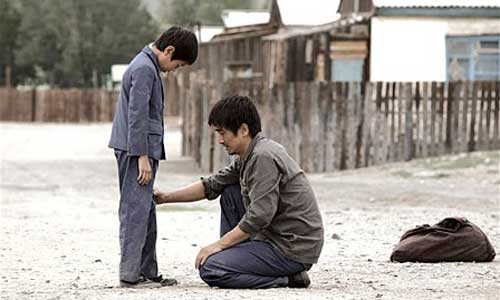Thousands of North Korean refugees fleeing face a cold reality in South Korean society. Many are seeking refuge in 3rd countries, although strict asylum rules mean many eventually are forced to settle in the South without benefits or resettlement payments. By Mihyun Jang
North Korean refugees in China
According to the Unification Ministry of South Korea, the number of North Korean refugees fleeing to the South hit 20,050 by the end of 2010 due to continuing food shortages and economic crisis in the Democratic People’s Republic of Korea (DPRK)1. North Koreans cross the border and come to China to avoid starvation and death, despite the threat of persecution. However, even though China is a party to the Refugee Convention, China only recognises North Korean defectors as economic migrants, not as refugees. While UN recognizes them as refugees sur place, which means “people who did not leave their country of origin for fear of persecution, but who fear persecution upon return”2, China keeps sending them back to DPRK where defectors faces harsh punishment or execution in detention centres.
Second-class lives in South Korea
After they have gone through all of this, they head to South Korea, which they had thought of as a promised land, but where they ended up encountering low-paid jobs, discrimination and alienation.
New research by the Database Center for North Korean Human Rights (NKDB) found that only 40% of the defectors have a job, which mainly involves manual labour, and their average monthly income is about 1,070,000 won (£550), less than half the South Korean average. The majority of North Koreans cannot find work at all. Many employers refuse to hire the defectors due to their accent, different culture and way of thinking, lack of basic skills in a high-tech society and perceived backwardness. Surprisingly, half of the North Korean defectors said they cannot understand South Korean speech due to the wide use of English loanwords and Chinese characters.

School is one of the places where young North Koreans are discriminated against and bullied due to their origins. The different education system and studying with younger children than their peers makes it difficult to adjust to school life. Also, some South Korean students’ parents have even protested in front of schools saying their children should not be taught in the same class with young defectors. As a consequence, up to 50% of young defectors have dropped out their school or university. Even defectors with good education and skills find it difficult to succeed in Korea due to ‘systems of informal connection (alumni connections, known as hakyeon, and regional connections, known as jiyeon) that exclude outsiders.’3
Many South Koreans see North Korean defectors as a costly burden which they have to pay for. Many of the younger generation do not want the North and South to be united. Separated families from Korean War have become forgotten issues and tax payers think that financial assistance to defectors is too much. Although North Korean defectors become South Korean citizens, they are more badly treated and discriminated against than illegal migrant workers. These difficulties in adjusting to Korean society and living in poverty has fueled the increase in criminal activity committed by defectors.
Seeking asylum in 3rd countries
For such reasons, North Korean defectors find other ways to survive. 200 defectors have gone back to North Korea even though they face fears of persecution and thousands have filed for asylum in USA, UK, Canada, Norway and Germany. According to the South’s foreign ministry, about 1,000 North Korean defectors applied for asylum in UK alone from 2004 to 2009 and around 373 were granted the asylum last year4. The UK subsidises housing and provides about £42 allowance per week until refugees find a job. There is also free education for children under the age of 18. Receiving refugees status in the UK, although seen as relatively easy, is becoming more and more difficult, with the process taking time and resources that refugees often do not have.
North Korean refugees’ lives in the UK are not easy either and some of those people are accepting citizenship in South Korea, despite the difficulties there. Moreover, since 2009, the UK government has ruled to cease granting refugee status to North Korean refugees, due to the suspicion that 70% of them may be South Korean citizens. Now, the UK government has asked the South Korean government to take 500 refugees, but those who have sought asylum in a 3rd country are no longer entitled to receive any support from the government.
South Koreans care too little about the North
The number of North Korean refugees and defectors is expected to keep increasing in the near future. Many South Koreans think that they should not be a big concern for them when South Korea has lots of problems to deal with itself. Most North Koreans have risked their own and their families’ lives to escape, but still face discrimination and alienation in Korean society. The Unification of Ministry states that North Korean defectors will play a vital role in reuniting the two Koreas, however, if we are to achieve this we need to increase understanding of the situation they face.
Links:
- http://www.asiatoday.co.kr/news/view.asp?seq=417393 [↩]
- Vitit Muntarbhorn, Question of the Violation of Human Rights and Fundamental Freedom in any Part of the World: Situation of Human Rights in the Democratic People’s Republic of Korea, E/CN.4/2005/34, 10 January 2005, p. 13 [↩]
- Andrei Lankov, Bitter taste of paradise: North Korean Refugees in South Korea, Journal of East Asian Studies 6 (2006), p.122 [↩]
- http://www.newdaily.co.kr/news/article.html?noV494 [↩]